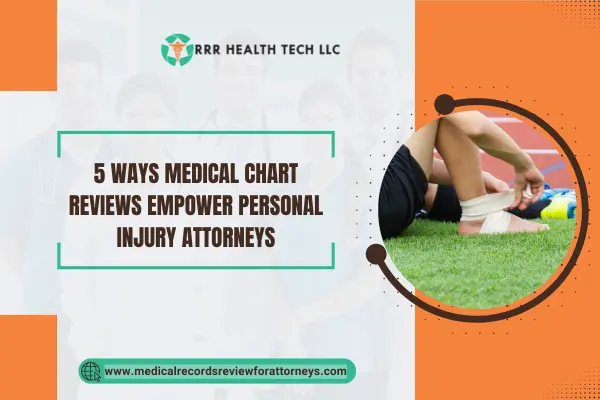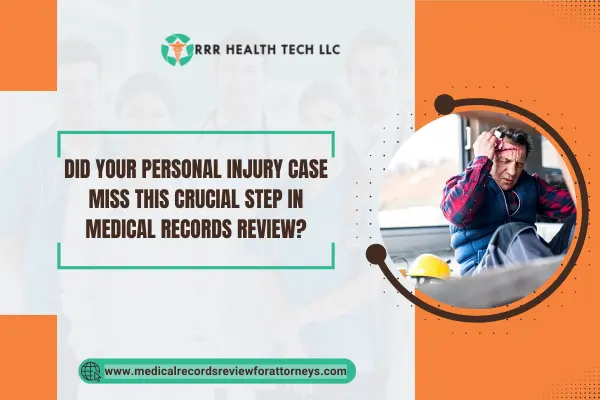
Introduction
Following a work-related injury can be quite challenging and complex. With so many things to worry about like appointment scheduling, wage loss, and more, you may also be feeling anxious about what’s going to happen with your Workers’ Compensation claim. Knowing how to check the status of your claim can help ensure that you get the benefits you are entitled to. This article highlights how you can track your claim status, the importance of medical record review, and how attorneys may aid you in protecting your interests.
Understanding Workers’ Compensation
What is Workers’ Compensation?
• Definition: Workers’ comp is a specialized type of insurance designed to give financial compensation and medical treatment to employees who get injured or become ill due to their work.
• Purpose: It is designed not only to pay medical bills, but also to replace some lost wages and help pay for rehabilitation services without any proof of negligence by the worker.
Importance of Workers’ Compensation
• Financial Security: It assists the injured worker in achieving economic stability while recovering.
• Employer Protection: It reduces the employer’s risk exposure and decreases the chance of suing.
How to Initiate a Workers’ Compensation Claim
Steps to File a Claim
- Report the Injury: Speak with your employer immediately after the event.
- Seek Medical Attention: Ensure that you get treated and all necessary files are completed.
- Complete Claim Forms: All forms must be completed correctly to ensure that there will be no delays.
How to Check Your Workers’ Compensation Claim Status
Methods to Monitor Your Claim
• Contact the Human Resources Department of Your Employer: They may know more about your claim and the insurer who is covering it.
• Get in Touch With the Insurance Provider: Call the designated insurance adjuster with your claim number and ask for the status of your claim.
• Use Online Systems: A good number of insurance providers and state workers compensation boards have online platforms for claim status inquiries. For instance, the Florida Division of Workers’ Compensation allows tracking of claimed resources.
• Contact State Worker’s Compensation Boards: State agencies will assist you and guide you in checking the status of your claim.
Understanding Claim Status Terminology
• Pending: The claim has been submitted for review.
• Accepted/Approved: The claim has undergone approval and is due to be paid out in benefits.
• Denied: The claim has been declined for approval.
• Under Investigation: Information is still being sought.
Common Reasons for Delays or Denials
Factors Leading to Claim Issues
• Incomplete Documentation: Any unfiled or incorrect documents are an obstacle to processing claims.
• Disputes over Injury Validity: The validity of an injury claim might still be contested and this may further delay a person’s claim.
• Missed Deadlines: If a reported injury or a claim is not filed within the designated time frame, then denial is the offer on the table.
The Role of Medical Records Review
Importance of Medical Records
• Definition: Medical records review is the process of going through a patient’s medical documents in order to validate a claim and its associated particulars.
• Benefits for Attorneys: This helps forensically by revealing information that substantiates or contradicts the claim within its relevant context.
How We Assist Attorneys
• Thorough Analysis: We carry out extensive analysis of the provided medical records so that all relevant information pertaining to the claim is pin-pointed.
• Expert Testimony: Our experts give testimonies based on the records reviewed which help achieve the desired outcome in court.
Why Legal Help Matters in Workers’ Compensation Claims
The Value of an Experienced Attorney
• Skilled Guidance: An attorney can alleviate any worries with regard to the often-complicated claims procedures.
• Documentation Assistance: They make certain that all information and dates relevant to the documents are included and submitted punctually.
• Representation in Disputes: An attorney can appeal claim denials and bargain on behalf of someone to settle disputes.
Case Studies
Case Study 1: Slip and Fall Injury
- Overview: An employee incurred a back injury after slipping on the floor of the warehouse.
- Challenges: The claim was denied due to a lack of supporting documents presented.
- Solutions: The detail review of the medical files showed that there were treatments done as well as a need for further care.
- Compensation: After the appeal was made, the injured employee was able to get payment for the medical bills and their pay during the time off from work.
Case Study 2: Repetitive Strain Injury
- Overview: A factory worker developed a case of carpal tunnel as a result of too many repetitive activities.
- Challenges: The claimant’s insurance tried to refuse pay for the claim because the injury was allegedly non-work related.
- Solutions: The combination of medical files and the ergonomic audits proved that the work setting caused the injury.
- Compensation: The worker received reimbursement from the employer for the healthcare and rehabilitation expenses.
Conclusions
It’s important to know how to search and check the information about your compensation claim so you understand what help is available to you. The available search options such as looking for a medical document help to make the claims procedure simpler. The legal aid can further augment your chances giving you the alleged help in case problems occur.


